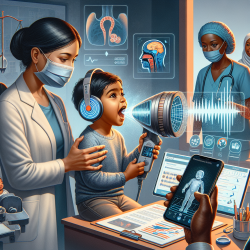Introduction
As a practitioner in the field of mental health, you are constantly seeking tools and methods to enhance your practice and provide the best care for your patients. The recent study on the reliability of the Urdu translation of the International Personality Disorder Examination (IPDE) presents a promising opportunity for practitioners working in Pakistan or with Urdu-speaking populations. This blog will explore the findings of this study and how they can be applied to improve clinical practice.
Understanding the IPDE
The International Personality Disorder Examination (IPDE) is a semi-structured clinical interview designed to assess personality disorders according to the ICD-10 and DSM IV classification systems. Developed by the World Health Organization, the IPDE has been translated into various languages to ensure cultural applicability and reliability across different populations.
The Study: Reliability of Urdu IPDE
Conducted at the Fatima Memorial Hospital in Lahore, Pakistan, this study aimed to test the reliability and cultural applicability of the Urdu translation of the IPDE. Over 11 months, 30 patients suspected of having personality disorders were assessed using the IPDE. The study found that the Urdu translation is a reliable tool for diagnosing personality disorders in the Pakistani population.
Key Findings
- The study demonstrated high inter-rater reliability, particularly for emotionally unstable borderline and impulsive personality disorders, with phi correlations of 0.831 and 0.930, respectively.
- The Urdu IPDE was found to be a reliable tool for screening and diagnosing personality disorders, making it a valuable resource for practitioners working with Urdu-speaking populations.
- The study highlighted the importance of cultural adaptation in diagnostic tools, ensuring they are understandable and applicable to the local population.
Implications for Practitioners
For practitioners, the Urdu IPDE offers a culturally sensitive and reliable method for assessing personality disorders. By incorporating this tool into your practice, you can enhance the accuracy of your diagnoses and provide more tailored treatment plans for your patients. Additionally, the study underscores the importance of cultural considerations in mental health assessments, encouraging practitioners to seek out and utilize tools that are culturally relevant to their patient populations.
Encouraging Further Research
While the study provides promising results, it also highlights the need for further research. Practitioners are encouraged to participate in or conduct additional studies to explore the use of the Urdu IPDE in different settings and with larger sample sizes. Such research can help refine the tool and expand its applicability, ultimately improving mental health care for Urdu-speaking populations.
Conclusion
The Urdu translation of the IPDE is a reliable and culturally appropriate tool for diagnosing personality disorders in Pakistan. By integrating this tool into your practice, you can enhance your diagnostic accuracy and provide better care for your patients. To read the original research paper, please follow this link: Reliability of the ICD-10 International Personality Disorder Examination (Urdu Translation): A preliminary study.










